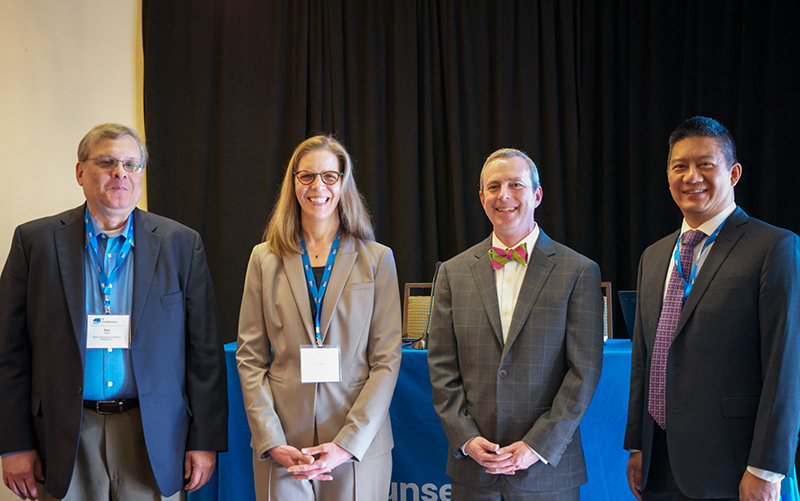International Day of Forests is a chance to acknowledge the importance of forests in the global ecosystem. Since 2013, the United Nations has celebrated International Day of Forests on March 21st, allowing the global community comes together to honor the essential role of forests in the environment.
And with a new report showing the urgent need to reduce greenhouse gas emissions, biotechnology can help improve both the health of forests and the health of the planet.
‘Biotechnology is primed to help us maintain healthy forest ecosystems’

“Whether it’s developing poplar trees that serve as carbon sponges, chestnut trees that fight back against blight fungus, or trees with built-in pest resistance, biotechnology is primed to help us maintain healthy forest ecosystems,” Lynne Finnerty, director of agriculture and environment communications at the Biotechnology Innovation Organization (BIO), told Bio.News.
As Bio.News reported last month, California biotech company Living Carbon planted a forest full of poplar seedlings genetically modified to grow faster and rapidly absorb more carbon. This was the first known planting of GM seedlings outside of a research trial or commercial fruit orchard.
Meanwhile, the U.S. Department of Agriculture (USDA) is seeking input on gene-edited American chestnut trees immune to deadly blight. The American chestnut, formerly a crucial component of the ecology of the Appalachian woodland with an estimated 4 billion trees, was almost completely wiped out in 1876.
However, before the trees can be planted, USDA’s Animal and Plant Health Inspection Service (APHIS) and the Environmental Protection Agency’s (EPA) Office of Pesticide Programs must provide input.
“Thriving forests are vital for the economy, for combatting climate change, and potentially even for human health by reducing the threat of viral transmissions to humans from wildlife leaving forests under pressure to find food,” she continued.
What’s next? Finnerty is optimistic about the future of biotech in forests: “we are on the cusp of a green revolution in forestry.”
‘A how-to guide to defuse the climate time bomb’
It is reassuring to hear such optimism in light of recent comments by the U.N. Secretary-General, Antonio Guterres.
“A how-to guide to defuse the climate time bomb” is how Guterres described a report published yesterday by the U.N.’s Intergovernmental Panel on Climate Change (IPCC), which states that global greenhouse gas emissions must be reduced almost in half by 2030.
U.S. Climate Envoy John Kerry reacted to the report findings, saying the “report is abundantly clear: we are making progress, but not enough.”
“We have the tools to stave off and reduce the risks of the worst impacts of the climate crisis, but we must take advantage of this moment to act now,” continued Kerry.
Why healthy forests must be a priority
As confronting climate change looks set to remain a top priority for lawmakers and diplomats for years to come, today is an important annual reminder of the continued long-term need to ensure healthy forest ecosystems.
BIO and its member companies are committed to doing their part to ensure that biotechnology is at the heart of ensuring that the Earth’s forest ecosystems remain in good health.
Innovation is essential to the long-term well-being of our planet. Embracing the innovations of the biotechnology sector are key to successfully combatting the multifaceted challenges posed by climate change.




